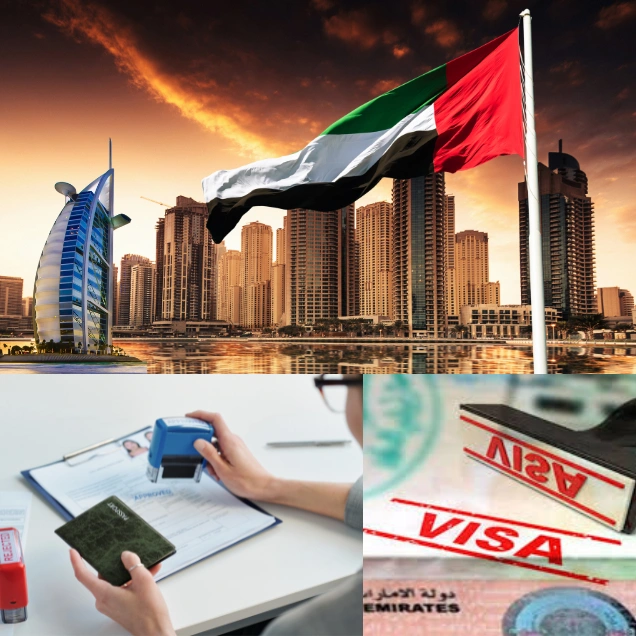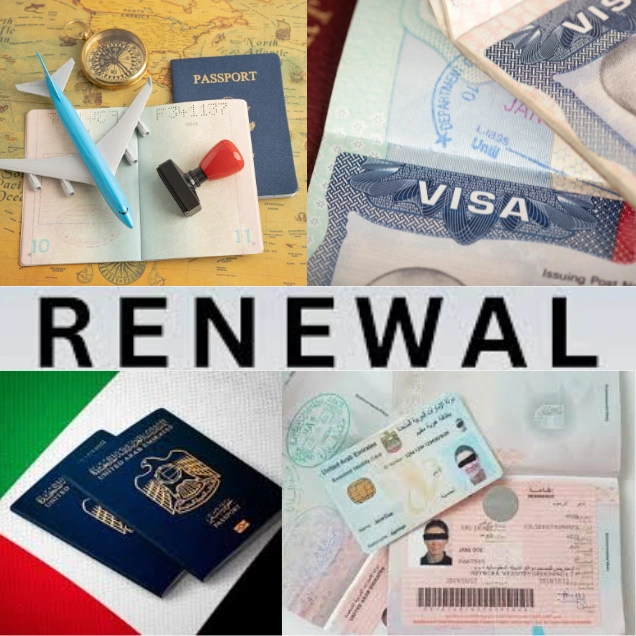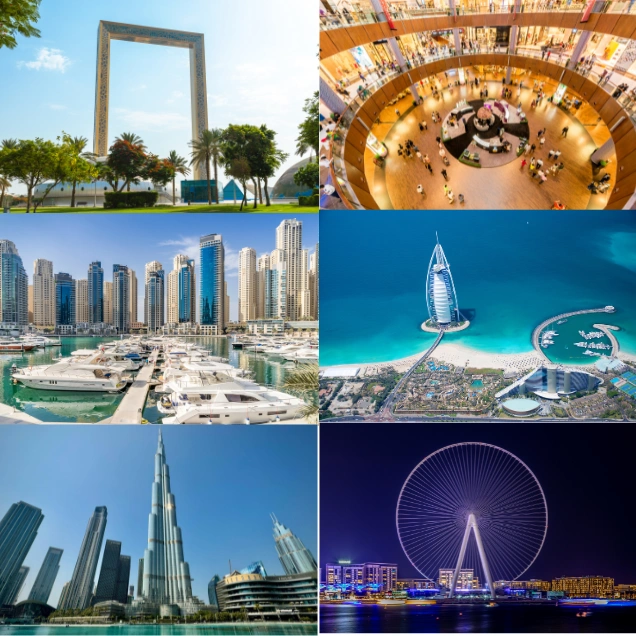


It sounds like you're looking for guidance on applying for a UAE visa. Here's a step-by-step guide to help you apply with confidence:
1. Determine the Type of Visa Tourist Visa: For short visits, usually valid for 30 or 90 days. Work Visa: Requires a job offer from a UAE-based employer. Residence Visa: For those planning to stay longer or relocate. Business Visa: For entrepreneurs or investors.
2. Check Eligibility Requirements Ensure your passport is valid for at least six months from the date of entry. Prepare necessary documents such as passport-sized photos, a copy of your passport, and financial statements if required.
3. Submit Your Application: Online: Apply through the UAE government’s official eVisa portal or through airlines like Emirates or Etihad. Through an Agency: Use a registered travel agency or visa service provider. Through Your Employer: For work visas, your employer will handle most of the process.
4. Pay the Visa Fee: Fees vary depending on the visa type and processing time. Ensure to pay securely through authorized channels.
5. Wait for Approval: Processing time can vary, so check the status of your application regularly. You may receive your visa electronically, which you should print and carry with you.
6. Plan Your Trip: Once approved, book your flight and accommodation. Ensure you have health insurance that covers the UAE, especially if it’s a requirement for your visa type.
7. On Arrival: Present your visa, passport, and any other required documents at immigration. Be prepared to answer basic questions about your stay in the UAE.
8. Stay Updated: UAE visa rules can change, so stay informed about the latest regulations.

Attend Our Conference and Secure Your United Arab Emirates Visa!
We’re Here to Help!
Invitation Letter Provided: We will send you a visa
invitation letter to support your application, making the process smoother.
Guidance and Support: Our
team is available to assist you with any questions or additional needs
throughout the visa application process.
Why Participate to the 16th Conference on Emirates
Pathology?
Explore Cutting-Edge Insights: Engage
with leading experts on critical pathology, digital pathology & cancer
topics, including the latest in cybersecurity challenges within the pathology
sector.
How to Apply a United Arab Emirates visa?
Applying for a United Arab Emirates visa involves several steps depending on your nationality, the type of visa you need, and whether you're applying from within or outside the United Arab Emirates.
Here's a general guide:
1. Determine the Type of Visa:
2. Check Visa Requirements;
3. Applying for the Visa;
4. Submit Required Documents:
5. Pay the Visa Fee:
6. Wait for Visa Processing:
7. Receive Your Visa:
8. Travel to the United Arab Emirates:
Make
sure to carry a printed copy of your visa and all relevant travel
documents.
9. At the United Arab Emirates Border:
Present
your visa, passport, and other documents to the immigration officer.
Note: Regulations and requirements can change, so it's advisable to check with the Saudi Arabia embassy, consulate, or official Saudi Arabia government websites before applying.
Secure Your Spot Today!
Don’t miss this opportunity to advance your career and
enjoy the vibrant city of Dubai, Saudi Arabia.
Register for the 16th Emirates Pathology Conference and start your visa
application process now!
General Documents Required for United Arab Emirates Visa
When applying for a United Arab Emirates visa, you'll typically need to submit the following documents. The exact requirements may vary depending on the type of visa you are applying for, but here's a general list:
1. Passport
Valid Passport: Your passport must be valid for at least six months from the date of entry into the Saudi Arabia.
Copies of Passport: Photocopies of the bio-data page and any previous United Arab Emirates visa pages, if applicable.
2. Passport-Sized Photographs
Recent Photograph: Usually, 2-3 recent color photographs, taken against a white background.
Size: Typically, 4.3 x 5.5 cm.
3. Visa Application Form
Completed Application Form: This can be filled out online or obtained from the consulate, embassy, or a visa service provider.
4. Flight Ticket
Confirmed Return or Onward Ticket: Proof of travel itinerary showing your planned entry and exit from the United Arab Emirates
5. Proof of Accommodation
Hotel Booking Confirmation: If staying in a hotel, provide the booking details.
Accommodation Details: If staying with friends or family, provide their residence details and a letter of invitation.
6. Proof of Financial Means
Bank Statements: Recent bank statements for the last 3-6 months showing sufficient funds.
Salary Slips: If employed, you may be asked to submit salary slips or a letter from your employer.
7. Visa Fee Payment
Payment Receipt: Proof of payment for the visa processing fee.
8. Travel Insurance
Health Insurance: Some visa types may require proof of health insurance that covers your stay in the United Arab Emirates
9. Cover Letter (if applicable)
Purpose of Visit: A letter explaining the purpose of your visit, especially for business or long-term visas.
10. Additional Documents (depending on visa type)
Invitation Letter: For business or family visits.
Employment Contract: For work visas.
NOC (No Objection Certificate): From your employer if you're currently employed.
Educational Certificates: For certain professional visas.
Sponsor Documents: If you are being sponsored, documents from your sponsor may be required.
11. COVID-19 Requirements (if applicable)
PCR Test Results: A negative PCR test report if required.
Vaccination Certificate: Proof of vaccination if mandated.
These are the general documents you’ll need, but it’s always a good idea to check with the United Arab Emirates embassy or consulate in your country or the specific requirements for the type of visa you're applying for.
Applying for a visa at the conference saves you the hassle of visiting a United Arab Emirates embassy or consulate separately. You can handle both your conference attendance and visa application in one place, streamlining the process.
How To Get A Visa When Attending Emirates Pathology Conferences in the United Arab Emirates
1. Acquiring technology and cybersecurity expertise
2. Broadening your personal connections
3. Marketing yourself and your identity!
Our Conference organizers often provide expert assistance and guidance throughout the visa application process. They can help ensure all required documents are correctly filled out and submitted, increasing the likelihood of a successful application.


Dubai is a vibrant and dynamic city located in the United Arab Emirates (UAE). It’s known for its modern architecture, luxury lifestyle, and diverse cultural landscape. Situated on the southeastern coast of the Persian Gulf. Dubai is a major global business hub with a strong economy based on trade, tourism, real estate, and finance. he world’s tallest building, offering spectacular views from its observation decks. A luxury hotel known for its distinctive sail-shaped silhouette. A modern waterfront district known for its high-rise buildings and lively nightlife. Dubai has a multicultural population, with expatriates making up a significant portion of residents. Dubai has a multicultural population, with expatriates making up a significant portion of residents. Hosts numerous global events, including the Dubai Shopping Festival, Dubai International Film Festival, and various sporting events. An extensive and modern metro system connecting key areas of the city. Well-developed public transport options, including a fleet of taxis and buses. High-quality education and healthcare facilities, with many international schools and medical centers. Known for its high safety and security standards. Dubai continues to grow and evolve, maintaining its status as a leading global city with a mix of tradition and modernity.